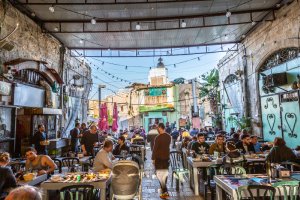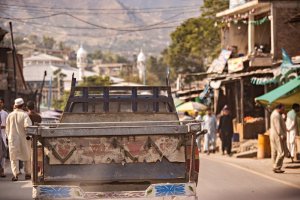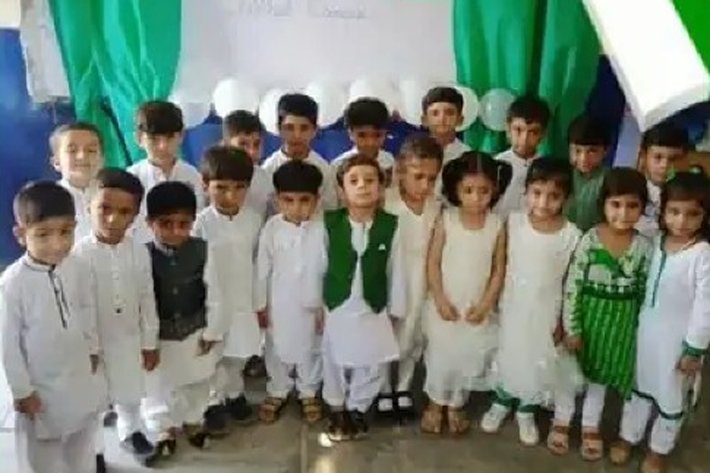How do you heal a broken community? How do you heal a religious minority torn from their home and now in a strange, albeit hospitable diaspora?
Some, like the Jews exiled from Israel, relied on an oral tradition. Others, like the Tibetan Buddhists, protest and continue to practice their faith in foreign lands. And still others use cooking.

In the 1970s, Shia Nizari Ismaili Muslims—a minority within the Shia Muslim minority of East Pakistan—now Bangladesh—fled that country’s civil war, as did others of their faith who escaped persecution in East Africa. Many found sanctuary in North America. They reconstructed spiritual community not through prayer or study of scripture, but through cooking traditional foods and performing everyday tasks, as mundane as cleaning the floors of Ismaili places of worship or changing diapers.
Author Shenila Khoja-Moolji—who has researched the subject and authored the book, Rebuilding Community: Displaced Women and the Making of a Shia Isaili Muslim Sociality—says that “religion in a way provides a code of conduct for communities to suture their lives back together.”
Shakar Juma, Khoja-Moolji’s grandmother—a Shia Nizari Ismaili Muslim—fled the strife in East Pakistan, and it was her story that inspired her granddaughter to chronicle the lives of others who suffered a similar fate. A widow and mother of five, Juma trekked 1,000 miles to what was then West Pakistan, and with the help of the Shia Ismaili community was able to build a new life for herself and her children.
“We often don’t read about women like my grandmother, a working-class Muslim who spent most of her life as a domestic aide and was always on the brink of falling deeper into poverty,” Khoja-Moolji, a professor of Muslim societies at Georgetown University.
“The histories of women like my grandmother and the women who helped her, they’re not really archived in national or religious history.”
The displaced women, according to Khoja-Moolji, didn’t just pick up the pieces of their lives, but knit together their community through seva, a Sanskrit term used to denote service to the Imam, and to individuals and the community as a whole. Seva brings both community building and spirituality together through everyday practices like cooking traditional dishes and thus dissolving the gulf between old homeland and new, past generations and the present.
Many of these migrant women have written cookbooks and, according to Khoja-Moolji they can actually be read as historical chronicles. “Recipes for kuku-paka for example, remind you of how Ismaili women of the past melded Indian spices with locally plentiful coconut. Every cookbook I studied finds recipes for seero, which is also distributed as a ritual food. These are everyday practices through which women are passing on the sensory inheritance to the next generation.”
The women of the Ismaili Muslim communities—scattered and challenged, but firm in their faith—ensure the continuity of their cultural and spiritual identity through the most basic survival staple of them all: food.
From its beginnings, the Church of Scientology has recognized that freedom of religion is a fundamental human right. In a world where conflicts are often traceable to intolerance of others’ religious beliefs and practices, the Church has, for more than 50 years, made the preservation of religious liberty an overriding concern.
The Church publishes this blog to help better understand the freedom of religion and belief and provide news on religious freedom and issues affecting this freedom around the world.
The Founder of the Scientology religion is L. Ron Hubbard and Mr. David Miscavige is the religion’s ecclesiastical leader.
For more information visit the Scientology website or Scientology Network.


